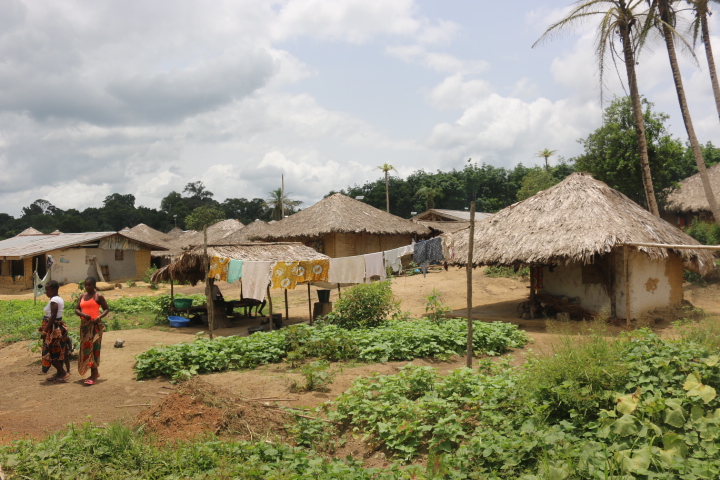Banner Image: A Village in Gbarsor, River Cess County. The DayLight/William Harmon
By William Selmah
MONROVIA – Civil society organizations working on land rights in Liberia have warned of land conflicts in Liberia, unless the Liberia Land Authority (LLA) speeds up the development of regulations for enforcing the Land Rights Act, including the customary ownership component of the law.
“The [Civil Society Organizations Land Rights Working Group (CSO-LRWG)] has witnessed a huge surge in land grabs by so-called elites of community customary land and some has degenerated into land conflicts and yet the Liberia Land Authority has not done much to properly investigate these land grabs and conflicts and bring them to an amicable settlement,” said Paul Larry George of Associates for Rural Development (ARD), a member of the CSO-LRWG, at the news conference on Monday.
“Land-grabs by elites resulting in land conflicts and human rights violations have been reported and documented across customary communities and there are no options available for communities who have been affected to seek redress at the local levels,” said Maima Brooks of Save My Future Foundation (SAMFU), another member of the group. The CSOs—which also include Sustainable Development Institute (SDI), Rights and Rice Foundation and Liberia Reform Movement (LRM)—expressed fear of the law not serving its intended purposes.
The LLA did not respond to queries for comments. We will update the story when it does.
‘It will live’
The Land Rights Act (LRA), which recognizes local communities’ rights to their ancestral lands without formal title or deed, was passed into law in 2018. However, implementation of the law has been a challenge in the absence of regulations. The DayLight runs a series on land-grab, which features ownership claims of community lands by current and past officials of government and their relatives, businesspeople, and other elites.
The LLA has started to formulate regulations for the implementation of the law but has not completed the process, though it has been more than three years since the law was created.
“We will not sit there and let it die just like that,” the group said. “It will live, sit up, walk and even talk.”




